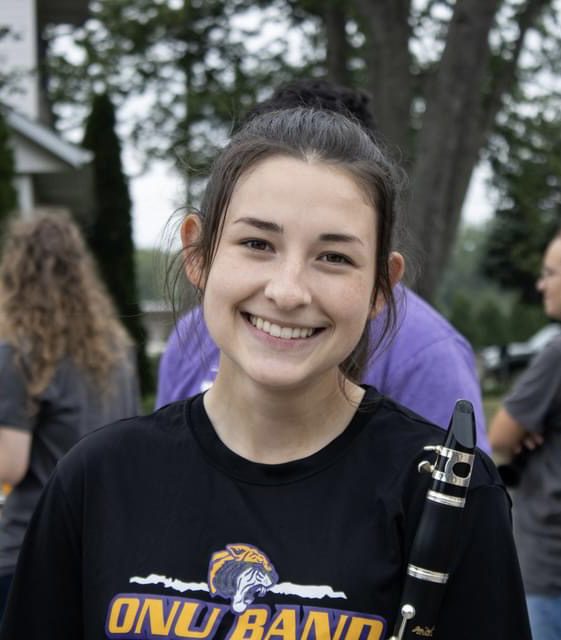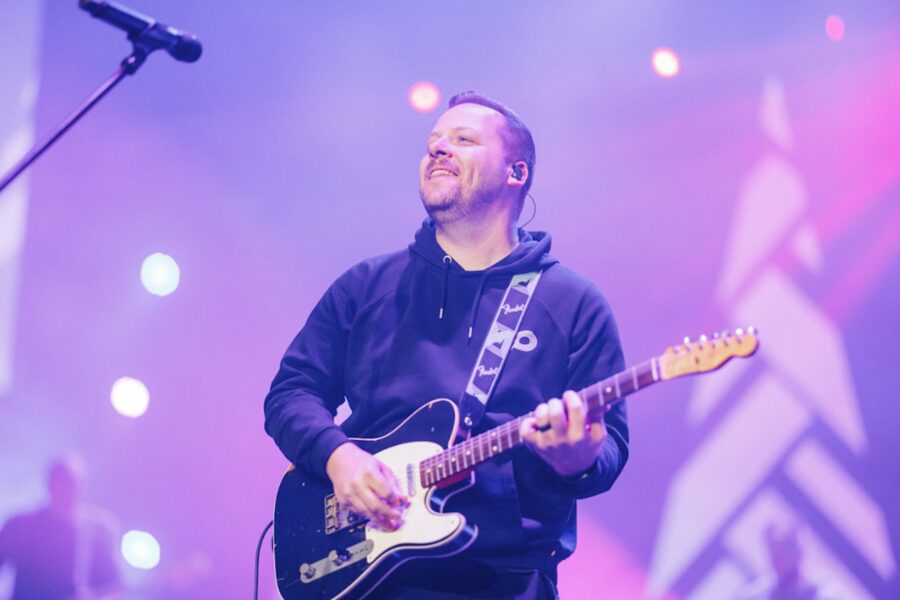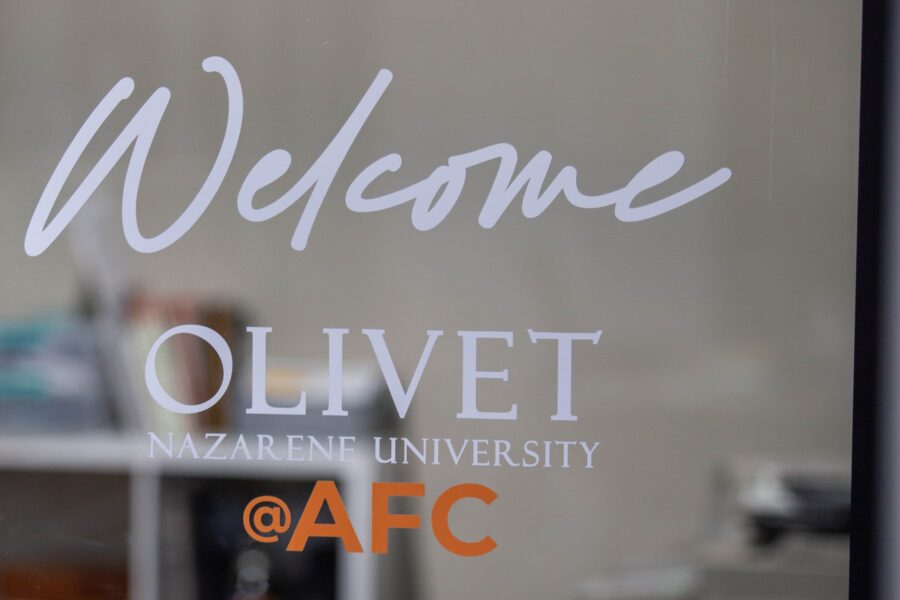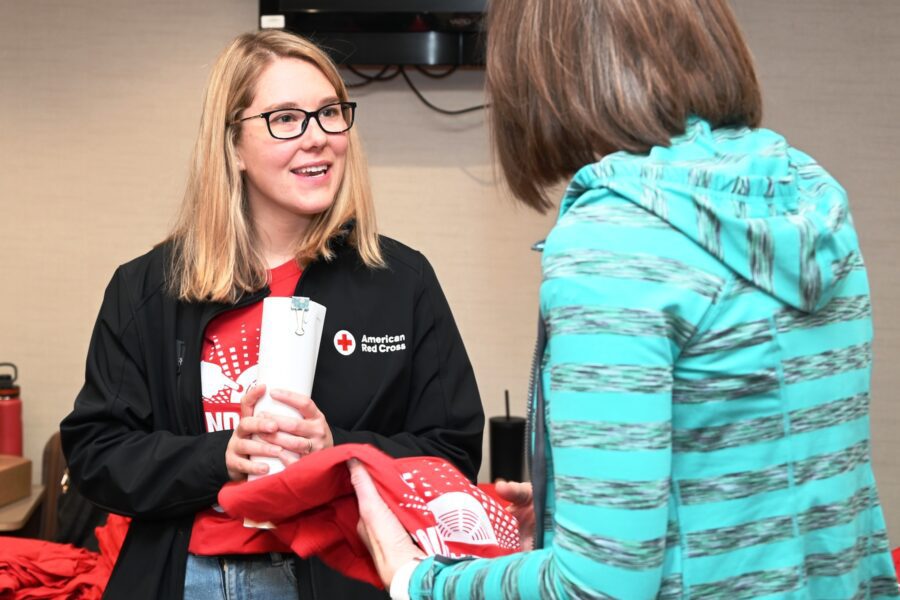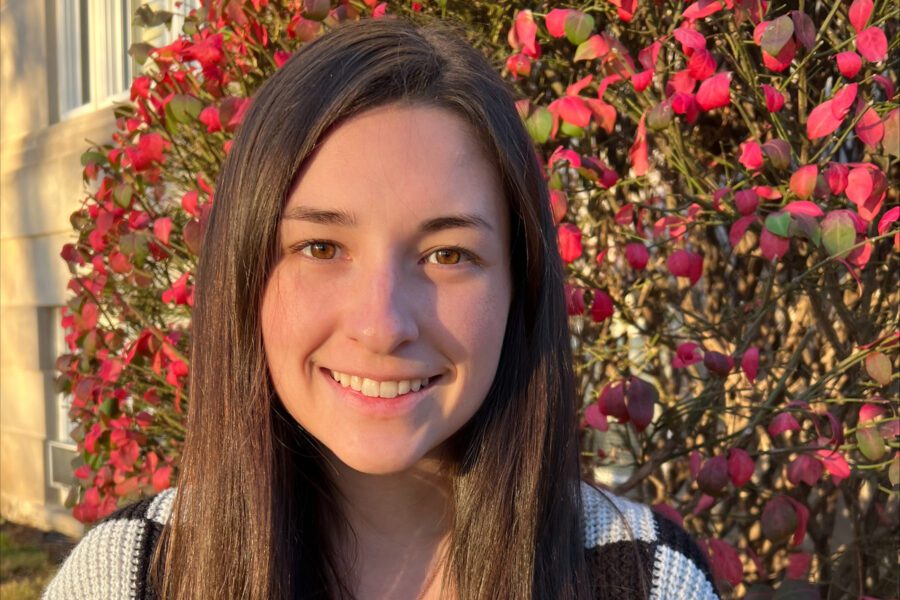
Katelynn Roscioli discovered an early affinity for the power of music, joining the school band in fourth grade and choir in sixth in her hometown of Bangor, Pennsylvania. For Katelynn, music provided peace and a spirit of collaboration. So, when she was concluding her high school years and beginning to consider her college plans, she felt confident that music would be an integral part of her academic pursuits.
It was after she had concluded her college search and committed to a school that she received an email from Olivet. She discovered that Olivet offered both a marching band and the University Honors Program. By the end of her senior year in high school, despite never having visited Olivet, she enrolled at Olivet as a music education student.
From a young age, Katelynn understood the underlying power of music, but, at Olivet, she experienced it with greater clarity. In her freshman year, she immersed herself in the Olivet community by playing clarinet in the ONU Tiger Marching Band, the University Orchestra and the Wind Ensemble and playing saxophone in Jazz Band. During her Olivet tenure, she has also worked in the Office of Admissions, served as a member of the band council and the council for Kappa Delta Pi, and worked as a tutor in the Department of Music.
“Music gives a sense of belonging and provides a natural structure of community,” Katelynn says. “I have found some of my closest friends by playing in different ensembles. We’re always in the same building together, and the professors make an effort to connect with students.”
Despite the support of community, Katelynn still battled a certain level of stage fright. Throughout college she has had to intentionally and prayerfully work through performance anxiety.
“My mentor and clarinet professor, Robert Evans, really helped me process some of the anxieties by talking things out,” she explains. “He also offered opportunities to work with other students to build my confidence. Additionally, the Honors Program helped me express myself. The professors always encouraged my cohort of classmates to share our thoughts openly.”
Students who are accepted into the University Honors Program enroll in four core classes as a cohort during their freshman and sophomore years and then formulate a topic proposal for a capstone research project to individually explore during their junior and senior years.
Although the specifics of her project have evolved throughout the research process, Katelynn knew before entering the program that she wanted to more deeply examine the power of music — specifically, how music affected elderly dementia patients.
“Listening to music can benefit anyone, but it can also help people recall memories from a preserved area in the brain,” Katelynn says of her research. “Music has the power to bring people back to life, if just temporarily. It can help people who suffer from dementia-related behavioral issues calm down, and the implementation of music therapy has even shown reduced use of medication in some cases.”
The finalized version of her capstone project centers on writing content for caregivers of dementia patients to use as a tool in administering home-based music therapy. Now in the final few months of the project, Katelynn is gathering feedback from music therapists and providers at local care homes to refine the content she will use to build the wireframe of a website geared toward dementia caregivers. She will also have multiple opportunities during her senior year to share the research, including at Olivet’s annual Scholar Week.
“I wanted to create a resource that my mom could have used while she cared for my grandpa for six years,” Katelynn says of the personal inspiration for her project. “People don’t realize that there are many ways to help dementia patients recall memories with lucidity. The point of this project is to make the information accessible and interactive so that caregivers, regardless of their own musical talents, can provide some therapeutic benefits to those with dementia.”
Throughout her time at Olivet, Katelynn has learned to trust the process and embrace the sometimes-inconsistent rhythms of life, even when it is difficult to maintain a steady beat.
“In music, and in life in general, it is good to embrace challenges,” she reflects. “I hadn’t even visited Olivet when I moved across the country for my freshman year. But I felt in my heart that I had to come here. Now I understand why. Music is an outlet to very authentically express yourself, and I am excited to be able to encourage that same expression of joy in other people.”


